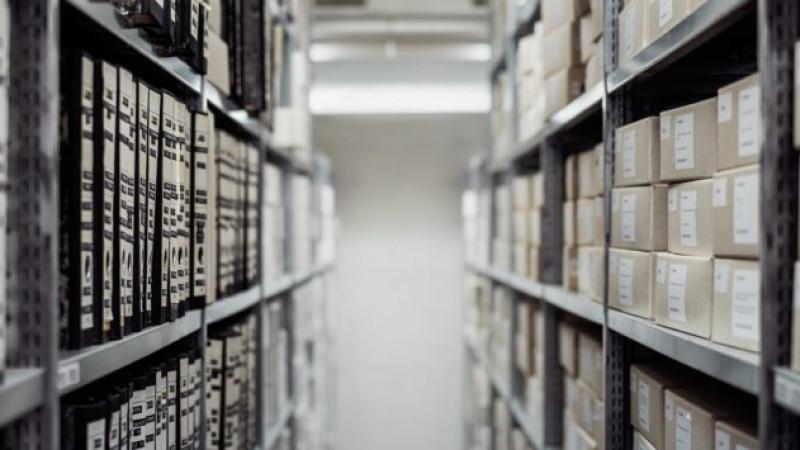One of the most important legal obligations a company has is to keep records of their business activities.
The exact amount of time you’re required to keep documents for depends on the country you’re in, and the type of document e.g. accounting documents or due diligence documents.
It’s recommended that you check your local laws on how long you’ll need to store your documents for, but it can often be up to 10 years depending on the nature of the records.
As it’s a legal requirement to keep these documents you’ll want to make sure they’re kept securely stored so they aren’t lost, stolen or damaged in all the years you need to store them.
The exact methods of storing documents will depend on the type of document you need to store, we’ll break it down into digital and paper document storage.
Tips for Securely Storing Digital Files
Use Cloud Storage
Storing important documents on your own computer(s) is fraught with danger. There could be any number of ways those documents get lost.
You could have a coworker accidentally delete the files, or a computer crash, or the hard drive could suffer physical damage from a flood or a fire.
This isn’t easily solved by having backups either. Firstly you have to remember to back up the files, which might go well for the first few months, but over time will likely start to be left later and later.
Then if anything does go wrong with your original files you might lose months worth of important documents if you haven’t backed them up regularly.
You’ll also need to keep your backups in a safe and separate location. There’s no point in having a physical backup that gets destroyed in the same flood the original files are damaged in.
Cloud storage solves these issues by having your files either existing wholly on the cloud or being regularly backed up to the cloud giving you peace of mind.
Secure Your Important Files
 Secure file storage isn’t just about protecting the files from damage or loss. You also need to protect the data from being stolen in a data breach.
Secure file storage isn’t just about protecting the files from damage or loss. You also need to protect the data from being stolen in a data breach.
This is now a legal obligation with the General Data Protection Regulation (GDPR) which requires you to protect personal data you’ve collected.
It’s important to have some sort of encryption on files that are confidential that way even if you do have a data breach the thief won’t be able to read the information they stole.
Use a Password Manager
Once you’ve encrypted your data you’ll need to remember the passwords to unencrypt it. This is much better done with a password manager. Not only will this allow you to use different passwords for different storage locations, but you can control who has access to different documents by granting them access to the passwords through the password manager.
An important part of document security is only allowing people to access the files they need to access and only granting access to your most sensitive files to trusted individuals.
Tips for Securely Storing Physical Files
No matter how much a business tries to move digital there’s still cases where important documents exist in physical form, and while they have different requirements it’s just as important to keep these files secure.
Move older files off-site
While documents are more recent you might need them close to hand, as it’s much more likely that someone will query an invoice sent two months ago than it is that they’ll query an invoice sent five years ago.
For this reason you’ll probably want to keep recent files somewhere close to hand for easy retrieval and inspection.
However, keeping older files close to hand comes with the huge downside that they will all quickly build up taking up vital space.
Much better would be to move these files off site, as the cost per square foot of renting a storage space will be cheaper than the cost per square foot of your office space.
Not only is this cheaper per square foot, but you get the added benefit of a more secure location where fewer people have access to your sensitive files.
Organise Your Files
It’s no good having all your files securely stored if you don’t know how to find them when you need them.
The exact method of organisation will depend on what sort of information you want to organise, it might make sense to organise the files alphabetically, by client, by date, or some other way. The important thing is just to have them organised so you can quickly retrieve them.
Make Copies
In the same way you need to have backups of your digital files it’s important to scan in your paper files and have a copy of your physical files in case anything happens to them.
Dispose of Old Documents
Once the documents are old enough that you don’t have to legally keep them / have no more use of them you should securely destroy them, this usually means taking them to a location that does confidential document shredding.
Don’t wait to get organised
Securing your documents isn’t something to put off until it’s too late. If you need help with storing your documents safely then why not get in touch with us here at Space Storage, our professional and flexible business storage solutions will be just what you are looking for.


